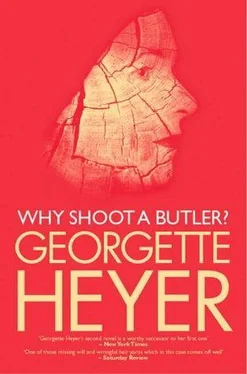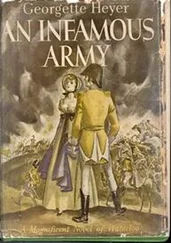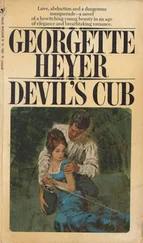"Yes, it was a nice clue, wasn't it, sir?" said the sergeant bitterly. "There might have been half a hundred people that didn't know that."
"But Collins did know," said Mr. Amberley.
"Yes, sir, and I don't mind telling you now that that's why I ruled him out," said the sergeant, fixing him with what he hoped was a hypnotic stare.
"Ananias," said Amberley. "You take my breath away." He put his pipe down on the mantelpiece and pushed his hands in to the front of his trousers. "Then," he proceeded "Uncle Humphrey took a turn."
" What?" said Sir Humphrey.
Amberley glanced down at him in some amusement.
" You did, sir. You went to talk to Fountain about poachers, and you walked off with the missing half of the will."
"What the devil are you talking about, Frank?"
"Which," continued Amberley imperturbably, "Collies had concealed in the back of the book you borrowed. I should like to know whether Collins saw you take that book away."
"Yes!" Felicity said. "He did, and now I come to think of it he tried hard to get it out of Daddy's hands. He offered to dust it, and to wrap it up, but Daddy refused."
"So there was nothing left to do but to burgle this house," said Amberley. "But as my uncle took the book up to bed with him the attempt to regain possession of it failed. When I observed the very curious nature of the burglary it gave me furiously to think. It was Aunt Marion who supplied the clue. She wondered why the books had been strewn about. I really thought I was on to it at last, but when Curiosities of Literature was brought to me there was no sign of the missing will in it. Nor did either you or Felicity, sir, call to mind that you had left the book for a few minutes in Shirley's keeping. I shall find that very hard to forgive."
"On the following morning Peterson rang me up to tell me that a woman, he thought Shirley Fountain, had telephoned to Collins."
"Yes, I remember that," interposed Corkran. "I told Basil, and he was jolly annoyed."
"I've no doubt he was. It would account for his following Collins that evening, just as I followed Shirley. She had an assignation with Collins at the pavilion by the lake. I spent a very boring day keeping an eye on her. The assignation was kept, but Fountain kept it too, and so did Peterson, whose job was to watch him all the time. Had Fountain managed to catch Shirley I think he would have killed her there and then. Happily he didn't find her. I did instead."
"But that assignation drove Fountain to desperate measures. If Collins was double-crossing him Collins also must be got rid of. And providentially my uncle had shown him a fairly good way of doing that."
Sir Humphrey bounced in his chair. "I?"
"Yes, you, sir. All your talk of poachers. I'm not blaming you. I even think it was a very good thing, for there is no doubt that Collins murdered Dawson and equally no doubt that we should have had great difficulty in proving it. But before Fountain could accomplish this design Collins made another attempt to get the fatal book back. Rather a bold attempt, but a successful one."
"Meanwhile Peterson was searching diligently through the rest of the books in the library without any success at all. It was an unnerving period. The will had evidently gone astray, and if by some malign chance it fell into Fountain's hands it would of course be immediately destroyed. When Collins, on discovering that it was no longer where he had put it, leaped to the conclusion that I had got it, and ransacked my room here, I was most relieved. It showed me that at least Fountain hadn't got it. If he had he would have taken good care to let Collins know he had burned it. On his way back to the manor from this house Collins was shot by Fountain, who, if you remember had spent most of the evening conveniently writing letters in the library.
"Again Fountain was a little too careful. He could not resist ringing up the police the same night. The reason he gave for doing that was rather too plausible. I never trust a plausible explanation. As soon as Peterson knew, he searched Collins' room for the half of the will but didn't find it. I expect you noticed, Sergeant, that he told me he'd found nothing when you had him in to interrogate him."
"That's right sir," said the sergeant. "Noticed it at once, I did."
"You're wasted in Upper Nettlefold, Sergeant," said Amberley.
"Well, sir, p'r'aps I wouldn't mind a change," replied the sergeant visibly gratified.
"Try the stage," recommended Amberley. He left the sergeant to think this out and continued: "Fountain now began to give himself away. Instead of saying as little as possible and leaving Fraser to make a muddle of the case, he had to try and improve it. No sooner had he got rid of Collins than he proceeded to knock the bottom out of the valet's alibi for the night of Dawson's murder. That was overdoing things. Up till that moment he had refused to believe that Collins could have done anything he shouldn't; similarly he had refused to sack the man in spite of his evident dislike of him. But when Collins was safely out of the way we were told that he had been sacked that very morning. Let me remind you, Sergeant, that you asked me when we left the manor what I made of it all. I told you that there were one or two significant points. Those were the points."
The sergeant, who was becoming reckless, said," I wondered whether you'd seen them too, Mr. Amberley sir."
"Fortunately," said Amberley dryly, "I had. It appeared to me that Fountain was getting into a tight corner and knew it. It was on the day after Collins' murder - this morning, in fact — that I took the precaution of paying a visit to Littlehaven."
"I was told you were investigating the murder," remarked Lady Matthews.
"Officially I was. I had no desire to let Fountain get wind of my real whereabouts."
"But, Frank, what made you go to Littlehaven?" asked Felicity.
"That motorboat," answered Amberley. "I hadn't forgotten the existence of a boat capable of crossing the Channel. I'm not going to pretend that I foresaw the use it would be put to. I didn't. What I did suspect was that Fountain, realising in what danger he stood, would have arranged a getaway in case things started to go wrong. The motorboat seemed the obvious way of escape. When I got to Littlehaven I made inquiries and discovered that she had been taken from Morton's Yard and moored to a buoy a little way up the creek, past Fountain's bungalow. She had been overhauled, and when I rowed out to take a look at her I found her all ready for sea. It looked as though my surmise was right, so I employed our friend the longshoreman to watch her and notify me by telephone the moment anyone took her out. This would have enabled the police to get on to the French ports and stop Fountain there. I still think that Fountain's original reason for having the motorboat in readiness was to provide himself with a way of escape. Once Collins was dead he hadn't the smallest desire to hurt Shirley. Without the will she could do nothing. Not one of his murders did he want to commit. I can quite believe that he spoke the truth when he said he had lived through hell. If he had never inherited his uncle's estate he would have remained what I think he was at heart - a cheery, kindly natured chap who only wanted a comfortable life and enough money to indulge his highly commendable tastes. The trouble was that he had regarded himself as Jasper Fountain's heir for so many years that when he found that he had been disinherited it was unthinkable for him to relinquish everything but ten thousand pounds. He had practically no private means, but had always received a large allowance from his uncle. He struck me as cunning when hard-pressed, but by no means a profound thinker. I am certain that he never visualised the possible consequences of his initial, and comparatively mild, crime. The two servants could be kept quiet by a little money, and although it wasn't by any means the sporting thing to do, no doubt he argued that Shirley and Mark couldn't miss what they had never known. He had been brought up to regard the manor as his, and I expect he felt that he was more or less justified in suppressing the later will. Once he had taken the one false step everything else was, as he said, forced on him. And I believe that he hated it and would have chucked up the sponge if he could have done so without landing himself in gaol." He paused. His audience sat silently waiting for him to go on. "But Fountain's mental processes, though interesting, are rather off the point. I said that once Collins was dead nothing was meditated against Shirley. That, I am convinced, is true. But fate in the person of my misguided cousin, dealt Fountain a blow. He learned from her of the adventures his book,
Читать дальше








